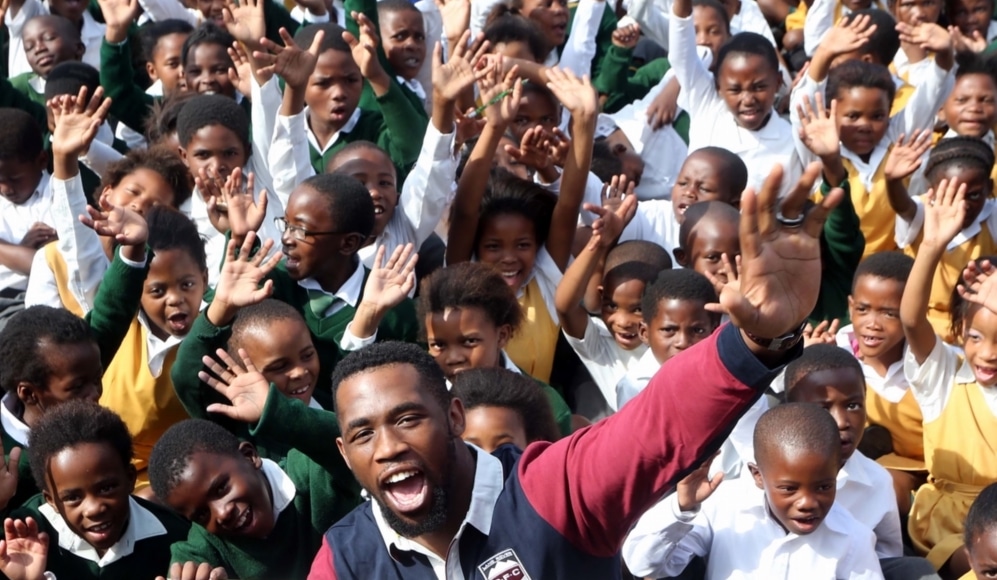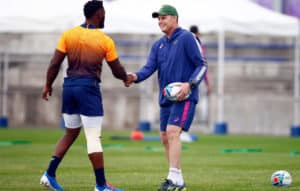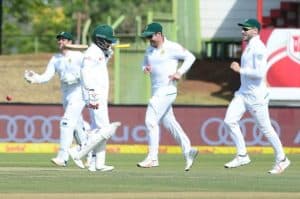Siya Kolisi’s comments on transformation have been blown sadly out of proportion, writes CRAIG LEWIS.
One of the most famous quotes from the great, late Nelson Mandela was that sport has the power to ‘change the world’, to ‘inspire’ and to ‘unite people in a way that little else does’.
How unfortunately ironic it is then that it was when referencing Mandela that comments from Kolisi on the sensitive subject of transformation have touched a nerve and left a divide along racial lines among South African sports followers.
ALSO READ: Madiba wouldn’t support quotas – Kolisi
South Africa is a unique country in so many ways: many good, many not so good. Unfortunately, the sad reality is that a history of racial division and segregation still permeates society nearly 25 years after democracy was attained.
When Mandela threw his weight behind the Boks at the 1995 World Cup, he did so in the hope of practising what he had preached in terms of using sport to unite people of all classes and colour.
With that memory in mind, it’s with a sinking feeling that I’ve viewed some of the responses made in reaction to Kolisi’s comments that were widely taken out of context.
Without readers taking the time to truly consider what was said, and the perfectly valid underlying reasons behind the comments, battle lines were quickly drawn along racial lines.
To review, Kolisi conducted a visit to Japan in December last year as part of a partnership with electronics company Panasonic that is largely aimed at serving to uplift those in underprivileged communities in South Africa.
The first collaboration between the parties in fact saw 10,000 solar lights donated to township children to commemorate Mandela’s centenary year in 2018.
As part of his visit to the Japanese company, Kolisi conducted a wide-ranging interview with Kyodo news, where he spoke passionately about his upbringing, the challenges endured, and his desire to inspire a better South Africa.
During that lengthy interview, talk of Mandela raised the subject of transformation, and Kolisi was asked for his thoughts on what the former president might say about it.
Kolisi duly shared his view that he didn’t think Mandela ‘would have supported that’. It’s a comment that made headlines, and cued emotional outrage and the drawing of racial battle lines without taking the time to understand the context.
To remove race, emotion and to truly consider what Kolisi was saying paints a very different picture. At no point is he disregarding transformation or suggesting that you have to go to a top school to make it to the highest level.
What he is saying is that from his experience of growing up in a township before having the privilege of attending Grey High, it is far easier for a person to achieve such success at a prestigious institution where there is everything at their disposal.
His point was that you need to start with ‘transformation’ in the townships and at grassroots level to ensure that talented kids from impoverished areas still have every opportunity to compete against peers from more privileged upbringings.
‘When I got to the school I started dreaming differently,’ he explained about his time at Grey High. ‘I had everything I needed to make it in life.
‘I ate six times a day and they had to stop me because I wasn’t used to eating so much. I got my own bed for the first time, I used to sleep on the floor [at home]. I got my first pair of socks, I had never owned socks before, and school shoes. It just gave me self-esteem and confidence.’
That is the true context of Kolisi’s comments. He doesn’t want to be selected on the basis of the colour of his skin, but he’s also perfectly aware of just how difficult it is for children from the townships to make it to the top without the necessary support.
SPECIAL REPORT: Transformation in SA rugby
Kolisi’s goal is to inspire the next generation and to give back to communities that are so often deprived of sporting success and opportunities due to poverty. His dream is that South African sport will one day reach a point where the best players are able to be backed for the job irrespective of race, upbringing or background.
In that light, the public backlash to comments taken out of context is a lesson to us all that understanding and acceptance has to start taking precedence over emotive racial responses that are dividing our society all too often.
Photo: Carl Fourie/Gallo Images





